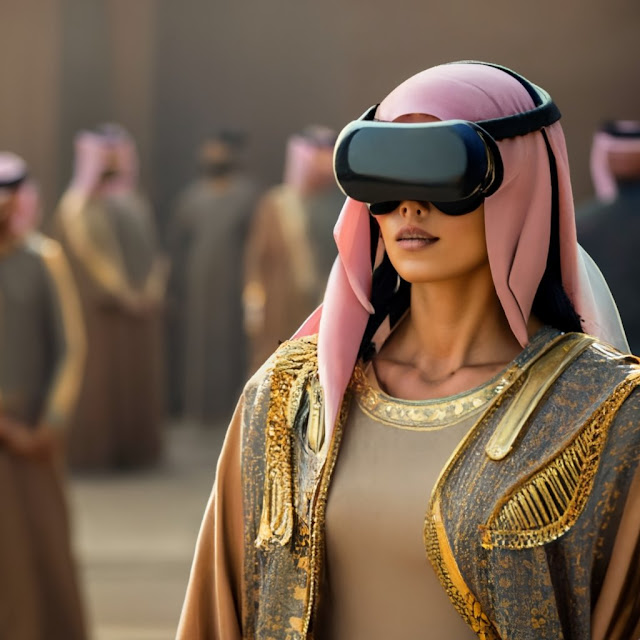The Meteoric Rise of the Metaverse
A Projection of $900 Billion by 2030 and its Implications
for the MENA Region
The digital realm is undergoing a transformative phase, with
the metaverse emerging as the next frontier in the world of technology. Recent
projections suggest that by 2030, the global market capitalization of the
metaverse business could soar to a staggering $900 billion. This is not just a
global phenomenon; the MENA region is poised to be a significant player in this
digital revolution.
Deloitte's recent study paints a promising picture for the
MENA region, predicting that the metaverse business could contribute a colossal
$80 billion to its GDP annually by 2035. Breaking this down further, metaverse
technologies could potentially infuse between $20.2 billion and $38.1 billion
into the Saudi economy and between $11.6 billion and $22 billion into the
Egyptian economy by 2035. These figures are based on global forecasts of
metaverse-related ICT investments.
The MENA region, characterized by its diversity and rapid
development, is uniquely positioned to harness the potential of the metaverse.
Countries rich in hydrocarbons are strategically pivoting towards
diversification to ensure sustained long-term growth. This shift is evident in
ambitious transformation programs such as Saudi Arabia's Vision 2030 and the
UAE Vision 2031.
Saudi Arabia, in particular, is making significant strides
in the technological realm. By 2025, the nation is projected to invest
approximately $24.7 billion in technology. This investment might stand out as
the world's largest when juxtaposed with the country's GDP. Furthermore, the
initiation of the NEOM project, a groundbreaking investment in new smart
communities near the Red Sea, underscores Saudi Arabia's commitment to
technological advancement.
The report also highlights a noteworthy statistic: a
whopping 79% of enterprises in the region are keen on integrating metaverse
technologies into their operations. This enthusiasm is not unfounded. Samuel
Hooper, CEO of Landvault, a pioneering metaverse technology business,
elucidates why metaverse enterprises are gravitating towards the GCC and the
regional market. The overarching goal of local governments and institutions to
emerge as industry frontrunners by 2030 is a significant draw. Hooper states,
"The government established this technological vision, which has sparked
innovation and attractive regulations for these companies." The GCC, in
its technological adoption and rollout cases, has outpaced many nations,
marking itself as an early adopter.
The region's proactive approach is evident in various
initiatives and projects. The Dubai Metaverse Strategy, the UAE Ministry of
Economy's foray into the metaverse, the Dubai Metaverse Forum, and the
integration of metaverse technologies in Saudi Arabia's NEOM project are
testament to the GCC countries' commitment to leadership in the virtual world
sector. The Dubai Metaverse Strategy alone aims to elevate the sector's
contribution to $4 billion by 2030 and account for 1% of the emirate's GDP by
the same year.
Hooper also emphasizes the educational endeavors in the
region to enlighten the populace about the ongoing technological developments.
The DIFC's launch of the Metaverse platform earlier this year was a strategic
move to attract tech innovators and foster development. He asserts,
"Regional governments have played an important role in educating
businesses and consumers about the future and potential of technology."
In conclusion, the metaverse is not just a fleeting trend;
it's the future. With global market capitalization projections reaching $900
billion by 2030 and the MENA region's potential contribution of $80 billion to
its GDP by 2035, the metaverse is set to redefine the digital landscape. The
MENA region, with its proactive initiatives, investments, and educational
endeavors, is gearing up to be a dominant player in this new digital era.

.jpeg)

Comments
Post a Comment